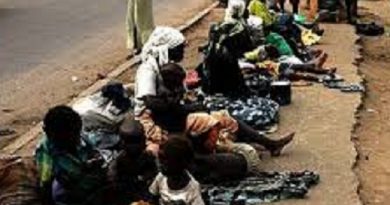CBN Resumes Dollar Sales for SMEs, School Fees
The Central Bank of Nigeria (CBN) has resumed the sale of foreign exchange to all commercial banks to enable parents wishing to pay schools fees and operators of small and medium scale enterprises (SMEs) wishing to make essential imports needed to revamp economic activities buy the greenback from the banks.
The central bank, in a statement yesterday by its Director, Corporate Communications, Mr. Isaac Okorafor, said the decision was arrived at, in view of the gradual easing of the COVID-19 lockdown both globally and in Nigeria.
“In particular, the CBN is resuming the provision of over $100 million per week for both categories. The CBN has also made complete arrangements to resume foreign exchange sales to the Bureau De Change segment of the market for business travels, personal travels, and other designated retail uses, as soon as international flights resume.
“With these actions, the CBN wishes to reiterate that it is adequately meeting the needs of all legitimate users, and our continued capacity to do so should not be in doubt.
There is, therefore, no need for panic by an end-user that could necessitate recourse to illegitimate sources and spike in foreign exchange rates.
“Given this, the bank has ramped up its surveillance of the foreign exchange markets for speculators, smugglers and other illegal users, and will take decisive actions against anyone/institutions involved in such nefarious activities,” the bank stated.
The CBN Governor, Mr. Godwin Emefiele, recently stated that despite the damage the COVID-19 pandemic was causing nations around the world, it presents an opportunity to birth a new Nigeria.
Emefiele, in a 27-page speech, had described the disruptions caused by the pandemic as an opportunity to re-echo “a persistent message the CBN has been sending for a long time.”
The message, he said, was the need for Nigerians to start looking inwards as a nation to guarantee food security, high quality and affordable healthcare and cutting-edge education for citizens.
According to him, for a country of over 200 million people, projected to be almost 450 million in a few decades, “we can no longer ignore repeated warnings about the dangers that lie ahead if we do not begin to depend largely on what we produce locally because the security and well-being of our nation is contingent on building a well-diversified and inclusive economy.”
He stressed the need for Nigerians to support the federal government in its quest to deliver high-quality infrastructure, support large-scale production of staple and cash crops in the country and develop the educational sector, among others.
He said the CBN would reinvigorate its financial support for the manufacturing sector by expanding intervention all through its value chain.
He added that with the support of the federal government, the CBN would embark on a project to get banks and private equity firms to finance home-grown and sustainable healthcare services that would help reverse medical tourism.




